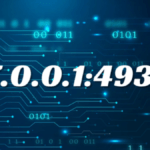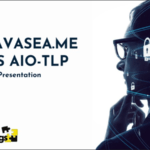Table of Contents
- Introduction to Kankakee Mugshots Zone
- What Are Mugshots and Their Purpose?
- How the Kankakee Mugshots Zone Operates
- Legal Framework Governing Kankakee Mugshots Zone
- The Ethical Debate Surrounding Kankakee Mugshots Zone
- Community Impact of Kankakee Mugshots Zone
- How to Access Kankakee Mugshots Zone
- Future of Kankakee Mugshots Zone: Trends and Predictions
- Conclusion: Balancing Transparency and Privacy
Introduction to Kankakee Mugshots Zone
The Kankakee Mugshots Zone has emerged as a focal point for residents of Kankakee County, Illinois, providing public access to arrest records and booking photographs. This platform not only allows individuals to view mugshots but also serves to inform the community about local criminal activities. However, as useful as this information may be, it also invites controversy regarding privacy, ethics, and the implications for those whose images are published.
Understanding the dynamics of the Kankakee Mugshots Zone requires a deeper look into the nature of mugshots, the legal landscape surrounding them, and the ethical considerations that arise from their public availability.
What Are Mugshots and Their Purpose?
Mugshots are photographic records taken by law enforcement agencies during the booking process of an arrested individual. These images serve several key purposes:
- Identification: Mugshots help law enforcement identify individuals and maintain accurate records.
- Public Awareness: Making mugshots public can inform the community about recent arrests and potential criminal activity.
- Deterrence: The visibility of mugshots may deter criminal behavior, as individuals know their actions could be publicly documented.
The Kankakee Mugshots Zone compiles these images and makes them available online, creating a centralized resource for the public.
How the Kankakee Mugshots Zone Operates
The operation of the Kankakee Mugshots Zone is straightforward. Local law enforcement agencies upload arrest records and associated mugshots to various online platforms. These platforms then categorize and display the information, allowing users to search by name, date, or charges.
Steps in the Process:
- Arrest: When an individual is arrested, law enforcement captures their mugshot.
- Data Entry: Relevant information, such as the individual’s name and charges, is entered into a database.
- Public Access: The data is then uploaded to the Kankakee Mugshots Zone and made accessible to the public.
While this process aims to promote transparency, it raises concerns about the potential misuse of the information.
Legal Framework Governing Kankakee Mugshots Zone
The Kankakee Mugshots Zone operates within a complex legal framework defined by state and federal laws. Key components include:
Freedom of Information Act (FOIA)
In Illinois, FOIA allows citizens to request access to public records, including arrest records and mugshots. This law aims to promote transparency in government but can have unintended consequences, especially for those not convicted of crimes.
Privacy Laws
While mugshots are public records, there are ongoing debates about individuals’ rights to privacy. The law generally presumes that once an arrest occurs, the associated information is public, but ethical considerations suggest that there should be limits on how long this information remains accessible online.
Legal Consequences
The legal landscape surrounding the Kankakee Mugshots Zone is evolving. Some states have begun to enact laws that restrict the release of mugshots or mandate their removal under certain conditions, such as acquittal or dropped charges. Illinois has yet to implement comprehensive reforms, but growing public concern may prompt legislative changes.
The Ethical Debate Surrounding Kankakee Mugshots Zone
The ethical implications of the Kankakee Mugshots Zone cannot be overlooked. Several critical issues arise:
Public Shaming
Mugshots can lead to public shaming and stigmatization, particularly for individuals who have not been convicted. The presumption of innocence is a fundamental principle of justice, yet the publication of mugshots often skews public perception.
Long-term Consequences
Once a mugshot is posted online, it can be nearly impossible to remove. Individuals may face long-term repercussions, including:
- Employment Challenges: Employers often conduct background checks, and a publicly available mugshot can negatively impact hiring decisions.
- Social Stigma: Friends and family may form judgments based on a mugshot, affecting personal relationships and community standing.
Exploitation by Mugshot Websites
Some websites charge individuals for the removal of their mugshots, which many consider exploitative. This practice creates a profit-driven model that targets vulnerable individuals, exacerbating the harm caused by public exposure.
Community Impact of Kankakee Mugshots Zone
The Kankakee Mugshots Zone has a profound impact on the local community, presenting both benefits and drawbacks.
Benefits: Public Safety and Awareness
Supporters argue that the Kankakee Mugshots Zone enhances community safety by providing residents with information about recent arrests. By being informed, citizens can take precautions and stay aware of potential threats in their area.
Drawbacks: Erosion of Trust
Conversely, the publication of mugshots can erode trust between law enforcement and the community. When individuals are portrayed as guilty before their day in court, it can foster resentment toward the justice system and create barriers between police and residents.
Privacy Concerns
The public nature of the Kankakee Mugshots Zone raises significant privacy concerns. Even though arrest records are public, many argue that the dissemination of this information in a digital format can lead to widespread, permanent damage to individuals’ reputations.
How to Access Kankakee Mugshots Zone
Accessing the Kankakee Mugshots Zone is relatively straightforward:
- Visit the Website: Numerous websites compile mugshots from Kankakee County. A quick online search for “Kankakee Mugshots Zone” will yield various results.
- Search for Specific Individuals: Users can search by name, date, or charges to find specific mugshots.
- Understand the Information: Users should be aware that mugshots do not necessarily indicate guilt. The presence of a mugshot does not equate to a conviction.
Tips for Navigating the Kankakee Mugshots Zone:
- Verify the Source: Ensure the website is reputable and up-to-date.
- Understand Your Rights: If you find your mugshot and want it removed, familiarize yourself with the process for submitting a removal request.
- Consult Legal Experts: For individuals affected by the publication of their mugshots, consulting with a legal expert may provide clarity on their options.
Future of Kankakee Mugshots Zone: Trends and Predictions
The future of the Kankakee Mugshots Zone is uncertain, as public sentiment shifts toward privacy rights and ethical considerations. Several trends may shape its evolution:
Potential Legal Reforms
As awareness of the potential harms of public mugshots grows, lawmakers may introduce regulations to protect individuals. Proposed reforms could include:
- Limiting Access: Restricting the publication of mugshots for non-violent offenders or requiring their removal under specific conditions.
- Transparency in Outcomes: Implementing policies that include case outcomes alongside mugshots to provide context.
Technology and Accessibility
Advancements in technology may further change how mugshots are disseminated and accessed. With the rise of social media, information sharing is instantaneous, raising questions about the longevity of mugshots online.
Balancing Public Safety with Individual Rights
Ultimately, the future of the Kankakee Mugshots Zone will hinge on finding a balance between transparency and individual rights. Public interest in criminal activity must be weighed against the potential damage to individuals’ lives resulting from the publication of arrest records.
Conclusion: Balancing Transparency and Privacy
The Kankakee Mugshots Zone represents a critical intersection of public safety, legal rights, and ethical considerations. While the availability of mugshots serves important purposes, such as fostering transparency and accountability, it also raises significant concerns regarding privacy, reputation, and the presumption of innocence.
As discussions about the Kankakee Mugshots Zone continue, it is crucial for lawmakers, law enforcement, and the community to engage in dialogue about the future of public mugshot databases. Striking a balance between the public’s right to know and the individual’s right to privacy will be essential in navigating this complex issue.
In conclusion, the Kankakee Mugshots Zone is more than just a collection of images; it is a reflection of societal values, legal principles, and the ongoing quest for justice and fairness in the digital age.





















